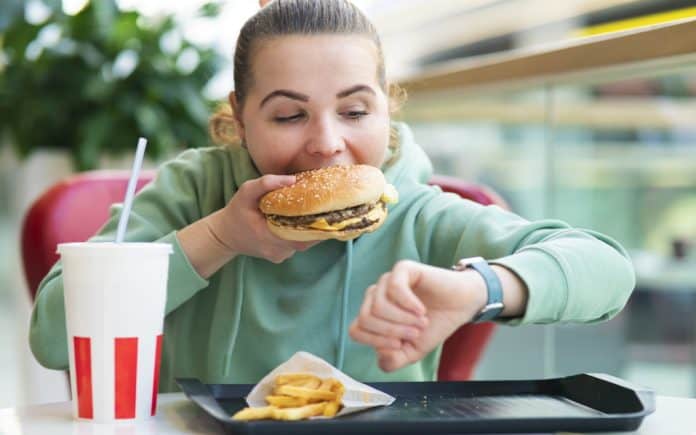If I skip dinner, will that help me lose weight? Is that rule different if I’m including my dinner in my calorie count for the day? Does the time matter too- like if I eat an early dinner?
While there is no scientific proof that eating at night is dangerous, some people believe it can have an effect on weight regulation. These three things: your appetite, the number of calories your body Burns and whether or not fat is stored in your tissues have been mentioned as potential implications.
But in 2022, we will finally have an answer to the effects of nighttime meals on our waistlines. If you’re looking to lose weight in a healthy way, this is the best time to eat every meal.
Breakfast as soon as you wake up
The researchers at Brigham Hospital looked into the correlation between when eating and obesity, so they formed two diets with similar meals but ate them 4 hours apart. In the second system, breakfast would be eaten 4 hours after waking up.
For 3 weeks, two groups of obese patients followed different diets while also maintaining fixed schedules for sleep and wakefulness. They recorded their daily activity, hunger times, appetite for food, and duration of exposure to sunlight. In addition, they underwent laboratory tests that included collecting small blood samples throughout the day, measuring temperatures
Last October, a study was released that showed the consequences of consuming dinner later in the evening. This research studied two different groups, revealing how nighttime eating alters sense of hunger and appetite-regulating hormones like leptin and ghrelin. The group who ate late at night experienced decreased levels of leptin (the hormone responsible for feeling full), increased cravings for starchy or salty foods, slowed metabolism rate, and weight gain.

Eating at fixed times
The findings of the study matched another explanation provided by Northwestern University- night eating is related to obesity and diabetes.
researchers found that eating outside of meal times disrupts the metabolism. Fat cells in our body metabolize food differently if it isn’t eaten at specific, set times; therefore, they cautioned against what they called the “cafeteria diet.” This is when a person eats their meals haphazardly, according to when they feel hungry instead of following a schedule.
The role of the human body’s biological clock in weight gain was also examined by the researchers. The clock tells the body when it should be active (day) or inactive (night), and increases metabolism during daylight hours because that is when people are usually most active. However, at night the metabolic rate declines because the body doesn’t need as much energy.
If you consume calories while inactive, it will disrupt your natural sleep patterns and cause increased feelings of hunger.
Consequently, researchers suggest heeding the human body’s internal clock – not only during designated sleep times – and using periods of productivity to burn calories.
Read More: The Best Treadmill Workout to Lose Weight and Burn Fat
Intermittent fasting
Based on our earlier experiences, we know breakfast should be eaten as soon after waking up as possible, and that it’s best to eat during daylight hours at set times. But how many hours do we have to eat?
The researchers at the University of California Department of Cardiovascular Medicine conducted a study consisting of a diet that only allowed eating for 10 hours and fasting during the remaining 14 hours.
By studying firefighters working 24-hour shifts, the researchers discovered that 71 percent of them had at least one risk factor for heart disease and diabetes. The reason for this is that their natural body clock was being disrupted.
The researchers partook in “intermittent fasting”, meaning they ate only during a specific timeframe and then fasted for the rest of the day. They were allowed to drink water and low-calorie drinks throughout the day, though.
The number of hours that intermittent fasting people fast varies, but the researchers found that 14 hours from food is the magic number: it’s easy to follow, and you won’t experience unhealthy weight loss, muscle loss, or poor energy.
The researchers who oversaw the 12-week long study observed that, upon completion of the regimen, the firefighters participating in it generally had lowered blood pressure and BMI as well as improved quality of sleep–all without having lost any muscle nor feeling more tired than before.
The researchers’ findings, published last October, showed that moderate intermittent fasting can improve lifestyle and physical and mental health. They advise eating over a period of 10 hours each day to avoid the side effects of harsher diets that involve fasting.



